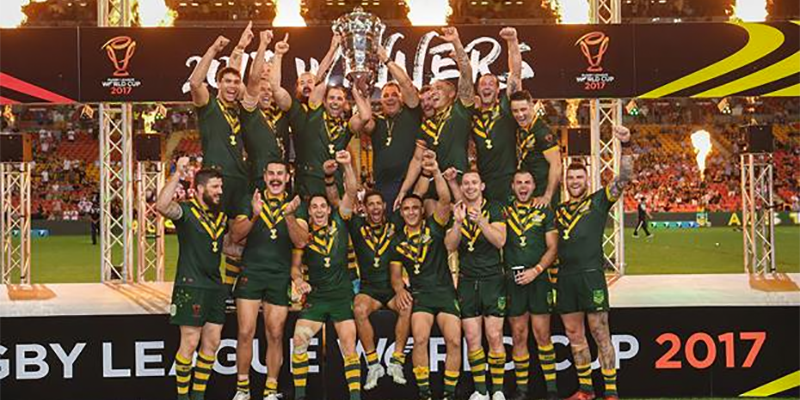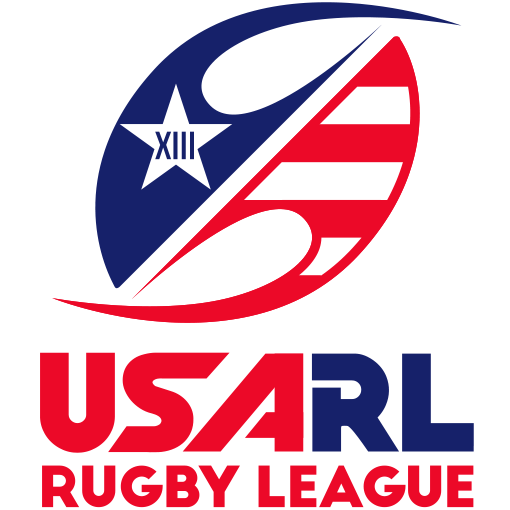Details revealed for 2021 World Cup
In the hours after Saturday night's Rugby League World Cup decider, England rugby director Kevin Sinfield sent a text message to Jon Dutton, the CEO of the 2021 tournament, asking the date of the final.

ARTICLE: Brad Walter, NRL.com | Credit: Gregg Porteous. Copyright: NRL Photos
"I told him that all being well it would be played on Saturday, November 27," Dutton said. "Kevin replied, 'Well planning to win the World Cup final on November 27, 2021 begins now'."
With the two million BBC viewers who watched the final and the England fans inside Suncorp Stadium daring to believe until the last tackle that the 2021 hosts World Cup hosts could also be the holders of the Paul Barriere Trophy, interest in the next tournament is strong.
Dutton said 39 towns and cities across England had expressed interest in hosting matches during the 2021 World Cup – a tournament that has received GBP25 million in government funding.
Many other key details have already been decided, including:
- the number of competing nations will increase from 14 to 16;
- the tournament will run concurrently with eight-team Women's and Wheelchair World Cups;
- games would be spread across the week and not just played on weekends as they were at RLWC2017;
- the maximum number of venues permitted by the Rugby League International Federation to stage matches will increase from 12 at RLWC2017 to 14 in 2021, and;
- 80 per cent of matches would be played in the code's northern heartland, with Hull, Leeds, Liverpool and Manchester almost certain to be among the host cities.
Dutton said the 2021 tournament would "absolutely stage games in London" and there was also interest from France but les Chanticleers will need to qualify after failing to advance beyond the pool stages in 2017.
The qualifying process has also been decided, with Australia, England, Fiji, Lebanon, New Zealand, Papua New Guinea, Samoa and Tonga guaranteed inclusion after making it to the quarter-finals.
In total, there will be seven European teams, six from Asia-Pacific (already decided), two from the Americas. The 16th and final spot will be decided by a play-off tournament featuring the No.1 Middle East/African nation, the third-best team from the Americas and a seventh Pacific nation side.
After Ireland won two of their three pool games and lost narrowly to the Kumuls in Port Moresby but failed to make the quarter-finals while Samoa advanced without winning a match, it is likely that at the 2021 World Cup the top two teams from each group will go through to the quarter-finals.
"We very genuinely now have stronger nations pushing the tier one nations," said Dutton, who was RLIF tournament commissioner at RLWC2017.
"The emergence of Tonga was the story of the World Cup and I was fortunate to be at both of Tonga's games in Hamilton as well as their game in Auckland against England.
"The Fiji performance in the quarter final was another highlight and Papua New Guinea was incredible full stop - the performance and just everything about their three games in Port Moresby.
"One of our values will be to be bold and brave, and I think that is what the organisers at the World Cup here did with Darwin, which was a huge success, and with Papua New Guinea, which was a resounding success."
The quarter-final between Australia and Samoa in Darwin, all three matches in Papua New Guinea, Tonga's clash with New Zealand in Hamilton and the semi-final between the Mate Ma'a and England in Auckland were all sell-outs.
However, it was the broadcast figures in both Australia and the UK which underscored the interest in international football, with Seven reporting that 7.2 million people nationally – more than a quarter of the population – had watched at least one World Cup game.
In Britain, the final – kicking off at 9am on Saturday – averaged 1.5 million viewers on the BBC and peaked at 2 million viewers.
In Australia, the final out-drew the third session of the Ashes in Adelaide, with 1.382 million viewers watching Australia's 6-0 defeat of England compared to 1.139 million viewers for the cricket.
Dutton said the creation of an international weekend on June 22-24 to coincide with the stand-alone State of Origin, in which no NRL or Super League matches are played, would help maintain the momentum between World Cups.
"There is no point just being excited about international rugby league in four years' time, we need to be excited about it in 2018, 2019 and 2020," he said.
"It is in everyone's interest to have more regular international competition in the international weekend which has been created, and then at the end of the season, so that everything can build towards the World Cup," he said.
"Then after we have had the World Cup in 2021 it is building towards something special in 2025, when the World Cup is staged in North America.


